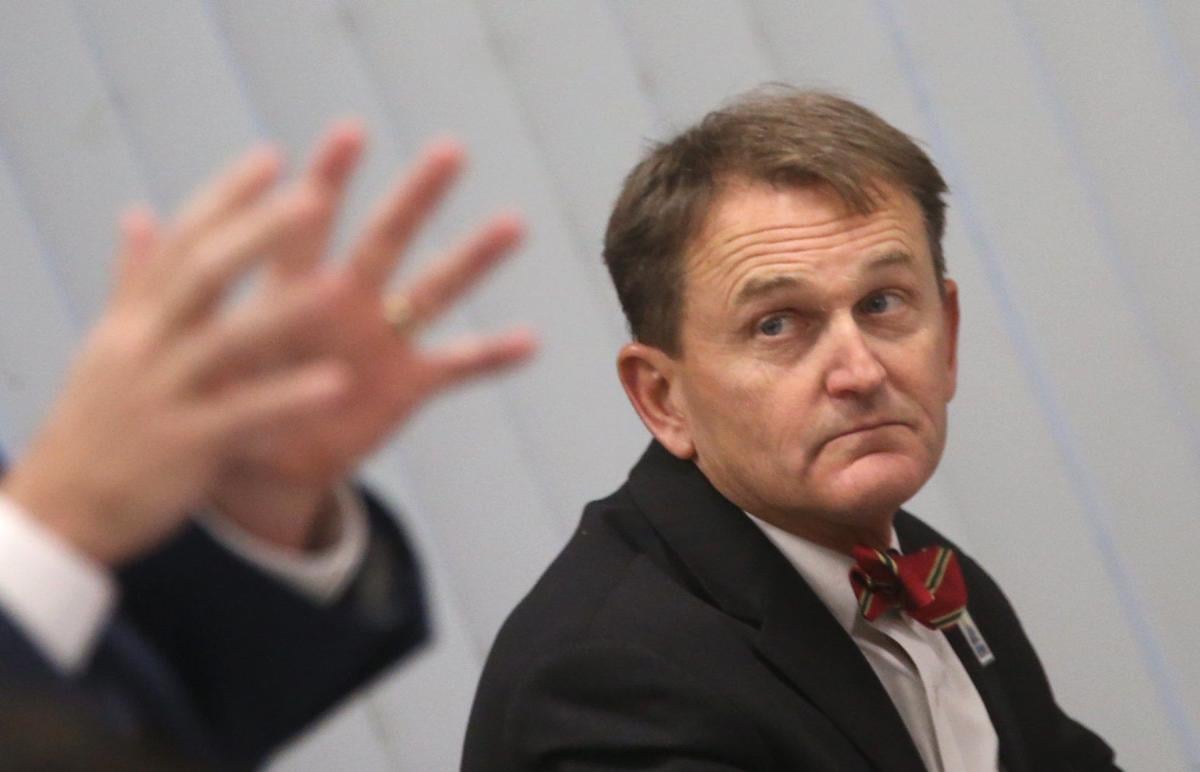
JEFFERSON CITY — Missouri lawmakers and county prosecutors have been unable or unwilling to stop the spread of unregulated gambling machines across the state, but a global pandemic could shut them down.
At least temporarily.
The Missouri Department of Health and Senior Services on Friday banned the operation of the slot machines that at least one politically connected company has installed at scores of gas stations and truck stops in the past year.
With Friday’s move, the state health department reversed its previous stance. On Thursday, Lisa Cox, spokeswoman for the agency, said, “This would be more easily enforceable by local health departments.”
The prohibition, which also includes other coin-operated games ranging from pool tables to pinball, is designed to stop the spread of the coronavirus, said DHSS Director Randall Williams.
“Due to the potential unnecessary exposure associated with individuals playing coin-operated amusement devices … and slot machines, all persons should avoid using such devices or machines and the owner of such devices or machines shall be prohibited from operating them for public use through the duration of this order,” Williams wrote.
The order, which went into effect Saturday, is set to last as long as the state is under an emergency declaration, potentially dealing a financial blow to companies like Torch Electronics, one of the industry’s leading firms.
Torch and its owners have contributed at least $20,000 to Republican Gov. Mike Parson’s campaign for a full term in November. The company also hired longtime Parson ally Steve Tilley, a former speaker of the Missouri House, as its lobbyist.
Torch spokesman Gregg Keller said the company would abide by the order.
“Torch is complying with the government’s call to shut down coin-operated machines, as they do with all government laws and regulations,” Keller said Saturday.
Williams’ order comes a day after the Missouri Gaming Association, representing the state’s 13 licensed casinos, called for state and local health officials to stop people from playing the machines because they pose a health threat during the outbreak of COVID-19.
The state has discouraged large gatherings to prevent spreading the virus, and Parson announced last week the closure of the casinos at least until March 30. That decision could cost the state an estimated $1 million per day in tax revenue.
A study released this month by the National Institutes of Health said the new coronavirus was detectable for “up to two to three days” on the kind of plastic and stainless steel surfaces used by the manufacturers of the gaming machines.
On Thursday, the health department gave no indication it was planning to ban coin-operated games in response to the push by the casino groups, which have been fighting the spread of the unregulated machines, which don’t pay taxes.
Illegal gambling complaints
The Missouri Gaming Commission has deemed the gas station machines illegal, and the state highway patrol has referred dozens of illegal gambling cases to local prosecutors.
Capt. John Hotz, spokesman for the highway patrol, said the agency had received 68 illegal gambling complaints this year: Investigators found 40 complaints credible. The patrol either hadn’t yet investigated or hadn’t found sufficient evidence in 24 cases.
The four remaining cases were repeat complaints from 2019, Hotz said.
Many county prosecutors have been reluctant to charge game operators with illegal gambling activity, saying they are awaiting the outcome of a case in Platte County.
The Missouri Senate, meanwhile, has debated legislation to crack down on the devices, but it’s unclear whether the upper chamber will be able to approve the legislation this year.
Jack Suntrup of the Post-Dispatch contributed to this report.